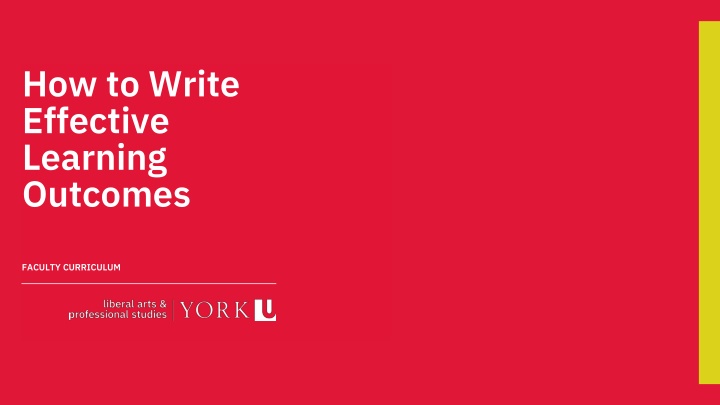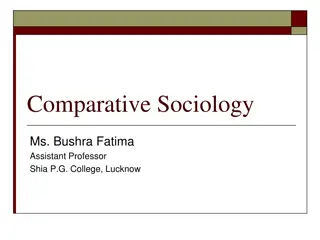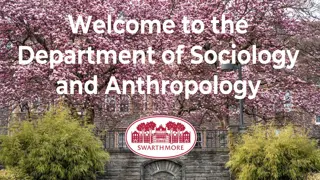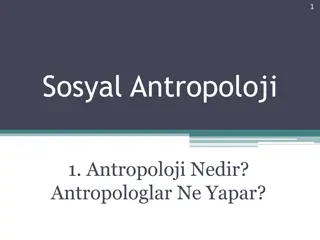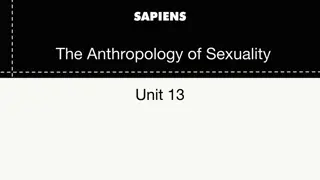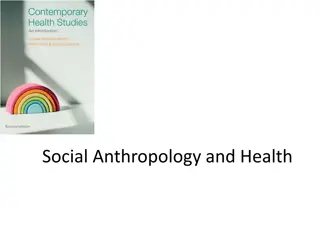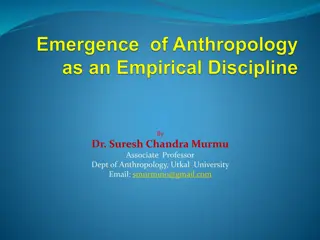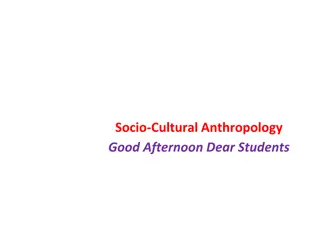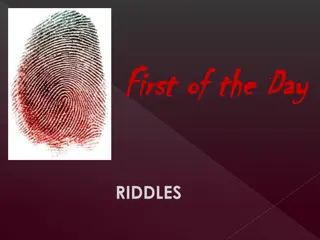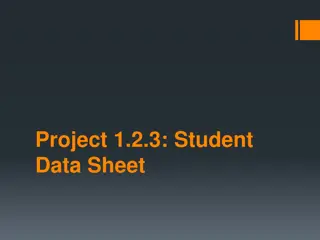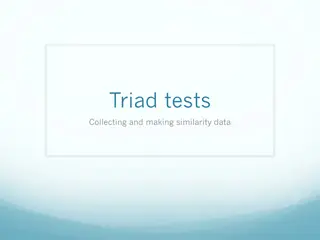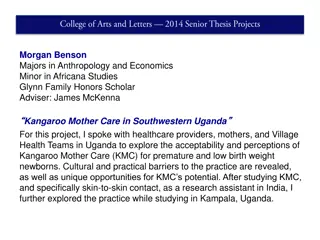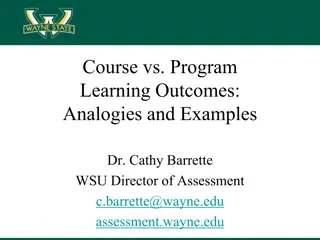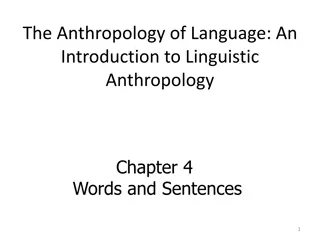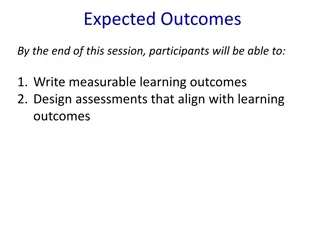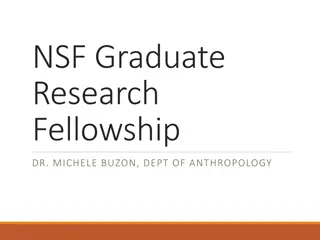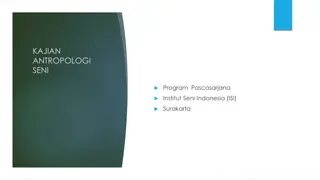Writing Effective Learning Outcomes for Anthropology
Crafting course learning outcomes in anthropology involves setting student-centric education goals, assessing learning progress, and providing clear direction for instructors to evaluate their teaching methods and assessments. Learning outcomes should be SMART, actionable, multifaceted, and well-written, incorporating specific action verbs, subject content, level of achievement, and, if necessary, conditions of performance.
Download Presentation

Please find below an Image/Link to download the presentation.
The content on the website is provided AS IS for your information and personal use only. It may not be sold, licensed, or shared on other websites without obtaining consent from the author.If you encounter any issues during the download, it is possible that the publisher has removed the file from their server.
You are allowed to download the files provided on this website for personal or commercial use, subject to the condition that they are used lawfully. All files are the property of their respective owners.
The content on the website is provided AS IS for your information and personal use only. It may not be sold, licensed, or shared on other websites without obtaining consent from the author.
E N D
Presentation Transcript
How to Write Effective Learning Outcomes FACULTY CURRICULUM
Course Learning Outcomes (CLOs) are crucial to any courses curriculum. CLOs are the statements that articulate to instructors, students and stakeholders what students will achieve and how their learning will be measured. In Other words, CLOs are the measurable, observable and specific statements that clearly indicates what students will be to learn and do at the end of the course. At York University, learning outcomes are defined as follows: Defining Course Learning Outcomes Learning Outcomes (LOs) are statements that articulate these goals. They are statements of what students are expected to know or do by the end of an educational experience.
1. To set a student-centric education rather than teacher-or content-centric education. 2. To set shared expectations between students and teachers. 3. To Assess teaching, curriculum, and most importantly, students learning. 4. To provide students with a clear idea about learning goals. 5. To provide clear direction for instructors to evaluate their teaching and assessment. Why Write Learning Outcomes
Learning Outcomes should be: SMART (Specific, Measurable, Attainable, Relevant, and Time Based) Demonstrate different levels of learning Actionable Multifaceted Well-Written Learning Outcome Please find more information in Learning Outcomes at York website.
Well-written learning outcomes involve the following parts: Action verb Subject content Level of achievement Condition of performance (if applicable) Components of Well-Written Learning Outcome
Step 1- Do What: Select an action verb that is measurable and observable. In other words, chose a verb that describes what students will learn Step 2- With What : Add the subject content that students will learn Step 3- For What : Level of achievement: a. To identify how much proficient a student will be after completing the tasks b. Not every CLOs will need this component c. It is not necessary to include effectively , correctly , or accurately or at the University level as these are implied Steps to Composing CLOs Step. 4 Condition of Performance: not applicable to all courses or disciplines To identify if students are only performing this outcome in a specific context 6
Anthropology: Develop an anthropological understanding of the key concepts and debates on multiculturalism and settler colonialism History: Explain the variable impacts of Spanish rule on subject peoples and the strategies they employed to mitigate those impacts. Communication & Media Studies: Articulate and outline emergent forms or tendencies of data injustice using interdisciplinary theories and literature. Gender studies: Critically examine historical developments in the fields of feminist scholarship and dance studies that have led to present-day social and performative constructions of The Body. Professional Writing: Demonstrate ethical decision-making and integrity in their own writing and reporting of information. Social Science: Upon completing this course students will be able to assess the historical connections between enduring patterns of social relations and systems of colonial and imperial domination. Examples of CLOs 7
List of Recommended Action Verbs 8
Verbs to Avoid Verbs to Avoid Believe Hear Realize Capacity Intelligence Recognize Comprehend Know, see, listen, think, Understand Perceive Experience Self-actualize Memorize Feel Phrases to Avoid Phrases to Avoid Appreciation for Acquainted with Adjusted to Awareness of Capable of Comprehension of Cognizant of Enjoyment of Conscious of Familiar with Interest in Knowledge of Knowledgeable about Understanding of Caution 9
